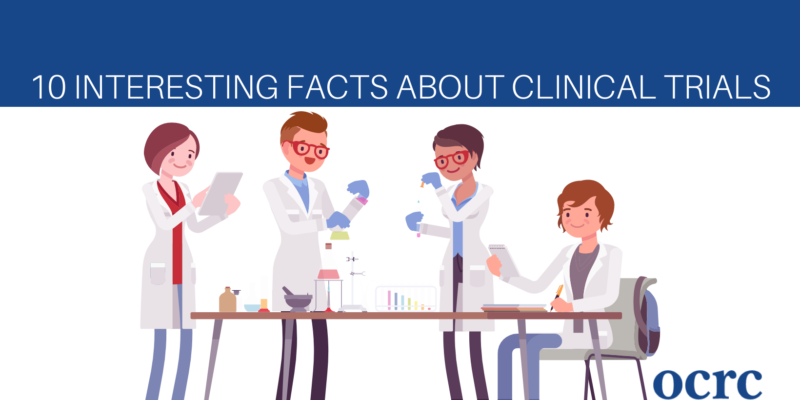10 Interesting Facts About Clinical Trials
Without clinical research, there would be no medical advancements. Without medical advancements, ailments such as polio, smallpox, and leprosy would still rampantly affect Americans. Now, due to clinical trials, we may see cures for diseases such as cancer, HIV/AIDS, and even Alzheimer’s within our lifetime.
Clinical trials are leading the way for new medical breakthroughs. Take a moment to learn 10 interesting clinical research facts that you may not already know!
10 Interesting Facts About Clinical Trials
- According to Clinicaltrials.gov, there were 2,119 registered clinical studies at the end of the year 2000. As of May 2019, researchers project that there will be 306,388 studies by the end of 2019.
- 10 new drugs were approved by the FDA between February and May 2019. These therapies include heart disease, psoriasis, bladder cancer, osteoporosis, multiple sclerosis, narcolepsy and sleep apnea, and postpartum depression.
- While 607,000 people are expected to die from cancer in 2019, cancer death rates actually decreased by 27% between 1992 and 2016. This trend may be attributable to recent developments in cancer research.
- Cigarette smoking contributes to about 29% of all cancer deaths. Approximately 45% of all cancer deaths are traceable to one’s lifestyle choices. This means making simple, consistent changes in order to live a healthier lifestyle.
- Alzheimer’s is the 6th leading cause of death in the United States. 1 in 3 seniors die every year from Alzheimer’s or another form of dementia. Alzheimer’s causes more deaths than breast cancer and prostate cancer combined.
- 3 million Americans live with Alzheimer’s disease. Sadly, this number is expected to triple by 2050.
- While there is no known cure, there are currently over 400 active clinical studies throughout 19 different countries. Study goals are to cure or at least delay the onset of Alzheimer’s disease.
- The University of Singapore ran a six-year study from 2011 to 2017, collecting data from over 600 seniors over the age of 60. Those who ate more than 300 grams of cooked mushrooms per week were 50% less likely to have cognitive impairments. Moral of the story: eat your mushrooms!
- Lupus research is very promising. Three new treatments monitored over the past year showed improvements when compared to the results of the clinical study participants who took a placebo. For example, a treatment called Stelara led to improvements in 62% of patients. Comparatively, 33% of those patients received a placebo.
- 95% of people who have participated in a clinical trial say that they would be willing to participate in another one. 91% of those participants rate their experience as excellent or good.
Learn More
If you would like to be a part of a clinical study, please contact us to get more information about your eligibility for current and future studies. You can also check out our blog for more information, liking knowing if you should pursue a career in clinical research.

